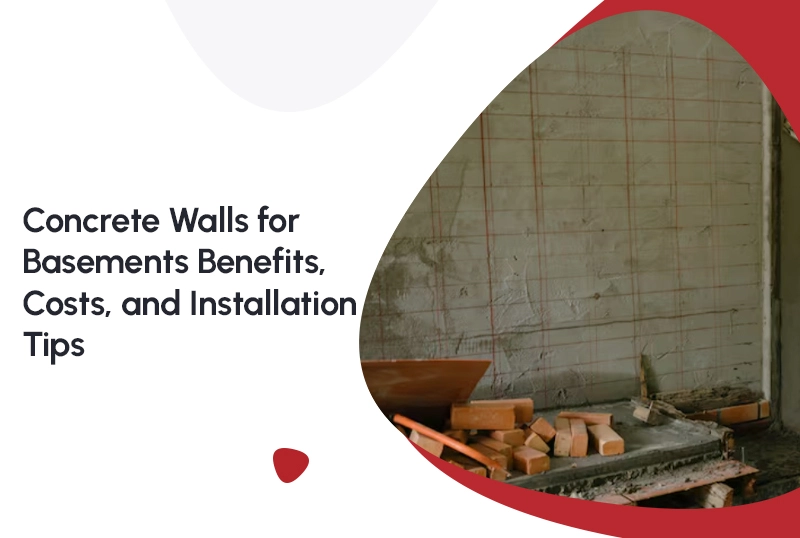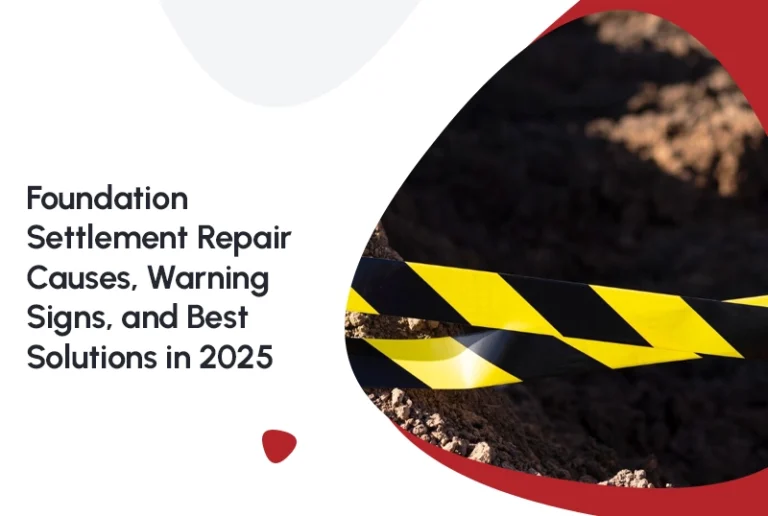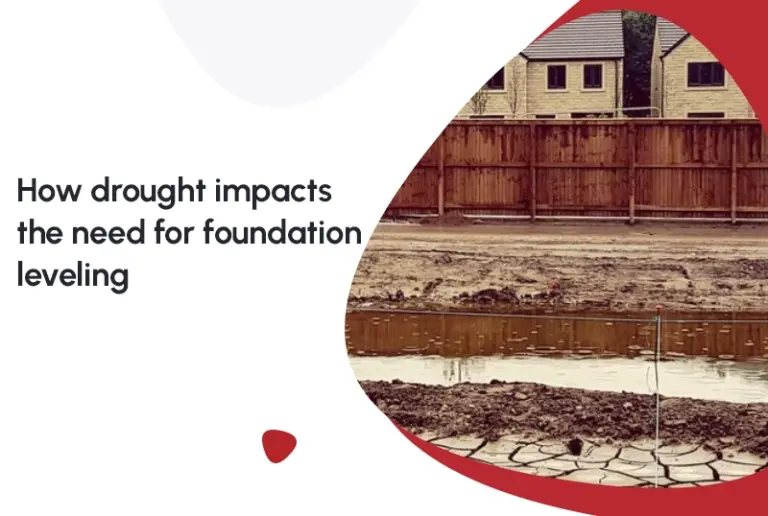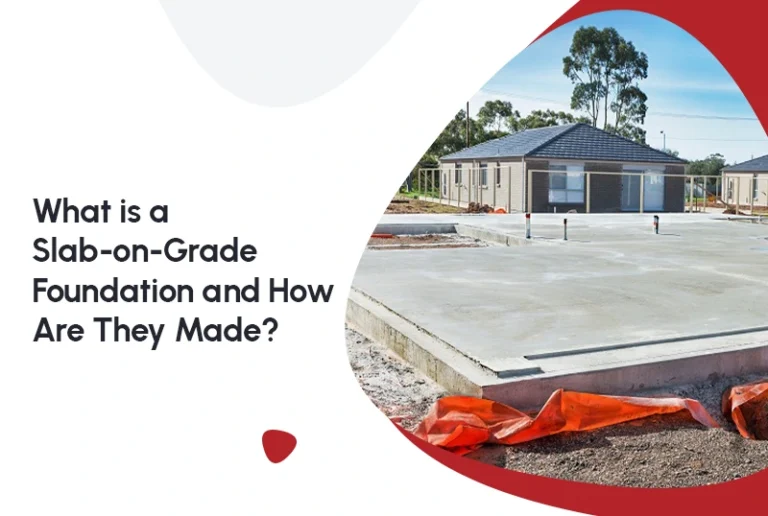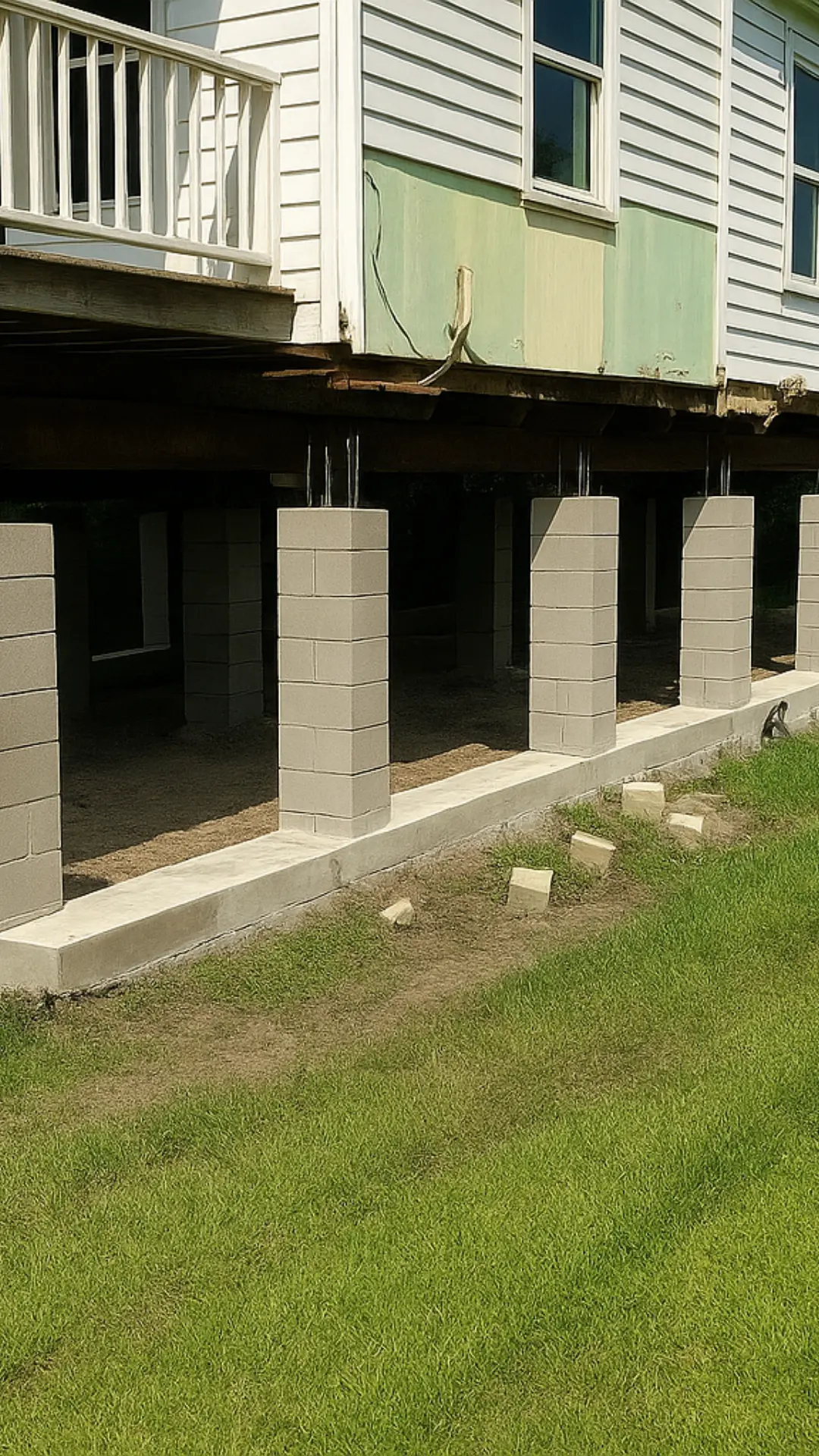When it comes to basement construction, the foundation is king and nothing beats the durability and reliability of concrete walls. Whether you’re building a cozy home office or an extra storage space, strong basement walls keep your home safe, dry, and long-lasting.
But before you dive into planning, you’re probably asking: How much do concrete walls cost? What benefits do they offer? And how can you make sure the installation goes smoothly without turning your basement project into a nightmare? Don’t worry, we’ve got you covered with a guide that answers all your questions.
Want to know how long concrete takes to cure? Click here to know more.
Why Choose Concrete Walls for Your Basement?
Concrete walls are not just strong—they’re the superheroes of home construction. Here’s why:
1. Durability That Lasts
These walls can withstand decades of pressure from soil and water, making them perfect for basements. Unlike wood or drywall, they resist rotting, warping, and pests. Imagine your basement as a fortress, and concrete walls as the impenetrable armor.
2. Moisture Protection
Basements are notorious for water problems. When properly installed, it can prevent leaks and flooding. Combine them with waterproofing measures, and your basement can stay dry even during heavy rainstorms.
3. Energy Efficiency
Concrete has excellent thermal mass, meaning it can help regulate your basement’s temperature. Warm in winter, cool in summer—it helps reduce heating and cooling bills.
4. Noise Reduction
Thick walls block outside noise and sound from upper floors. If you’re turning your basement into a home theater or music studio, it can give you a quiet, controlled environment.
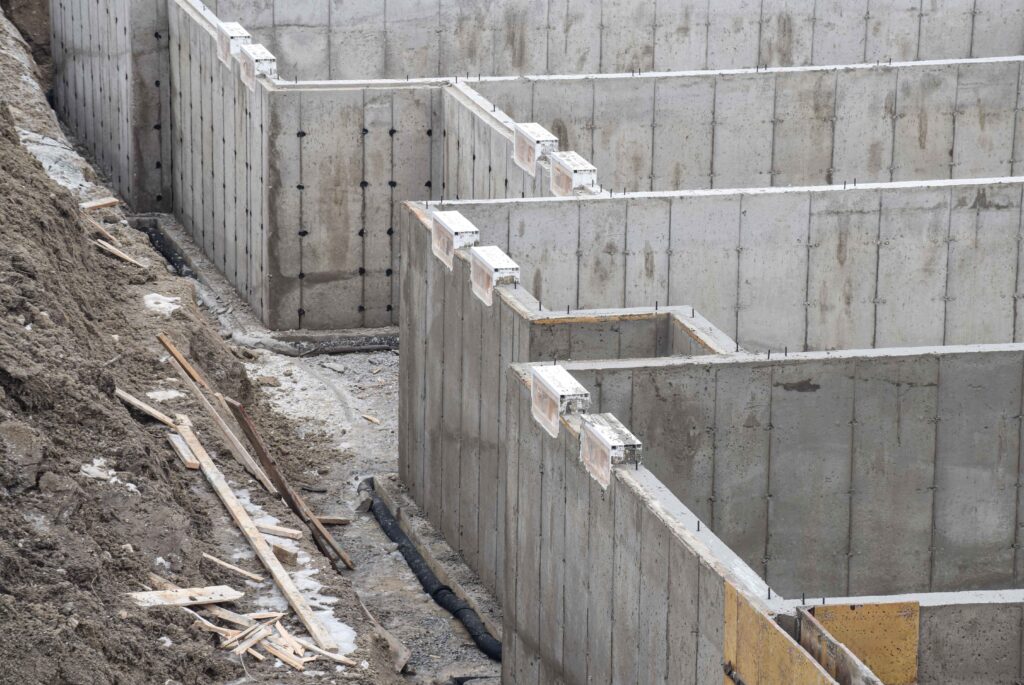
Types of Concrete Walls for Basements
Poured Concrete Walls
- Created by pouring concrete into forms on-site.
- Seamless and extremely strong.
- Ideal for custom basement layouts.
Concrete Block Walls
- Made from stacked concrete blocks reinforced with steel and filled with concrete.
- Less expensive than poured walls but slightly more labor-intensive.
- Offers flexibility for future modifications like adding plumbing or electrical lines.
How Much Do Concrete Walls Cost for Basements?
The cost of concrete walls can vary depending on size, type, and region:
- Poured Concrete Walls: $10–$15 per square foot.
- Concrete Block Walls: $8–$12 per square foot.
Factors Affecting Cost:
- Wall Thickness: Thicker walls = higher costs.
- Labor Rates: Urban areas typically cost more.
- Soil Conditions: Rocky or clay-heavy soil may require extra excavation.
- Waterproofing: Adding a moisture barrier increases upfront investment but prevents expensive repairs later.
Did you know that according to the National Association of Home Builders, basement foundation walls account for over 30% of the foundation cost of new homes?
This highlights how critical it is to plan carefully and choose the right materials.
Installation Tips for Concrete Basement Walls
1. Hire Professionals for Poured Walls
While DIY enthusiasts can tackle block walls, poured walls require expert formwork and proper curing to prevent cracks. Improperly poured walls can lead to water infiltration and structural weakness.
2. Prepare the Site Thoroughly
Excavation must be done carefully. Uneven soil can lead to settling issues, and failing to install proper drainage can cause water in basement walls, leading to moisture damage over time.
3. Use Reinforcement
Steel rebar or wire mesh strengthens concrete walls, making them less prone to cracking. Reinforcement is especially important in areas with heavy soil pressure.
4. Waterproof the Walls
Even concrete walls can let moisture through over time. Apply waterproof coatings, install drainage systems, and consider a vapor barrier to keep your basement dry.
5. Consider Future Modifications
Plan for electrical outlets, plumbing, or storage niches. Pre-planning prevents costly concrete wall modifications later.
Common Problems With Basement Concrete Walls
Even the strongest concrete walls can face issues if installation or maintenance is neglected:
- Cracks: Usually caused by settling or poor curing.
- Water Leaks: Improper waterproofing leads to moisture and potential mold growth.
- Spalling: Chipping or flaking of concrete surfaces due to moisture, freeze-thaw cycles, or corrosion of embedded steel.
Tip: Early detection can prevent small issues from turning into major repairs like concrete slab foundation repair or extensive concrete spalling work.
DIY vs. Professional Installation
While some homeowners attempt to build block walls themselves, poured walls require professional expertise. Professionals ensure:
- Correct formwork
- Proper concrete mix and pouring techniques
- Reinforcement and curing best practices
- Effective waterproofing
Trying to cut corners can lead to expensive foundation repairs, moisture issues, and even structural failures.
Final Thoughts
Concrete walls are the backbone of any basement, offering strength, durability, and moisture protection. While costs vary, investing in quality materials, proper installation, and waterproofing can save homeowners from future headaches like water damage, spalling, or leveling issues.
Whether you’re building a new basement or reinforcing an existing one, FNF Foundation provides expert guidance and professional services to ensure your concrete walls stand strong for decades. Protect your home, your investment, and your peace of mind—contact us today!
FAQs About Concrete Walls in Basements
Q1: Are concrete walls suitable for all basement types?
Yes. Concrete walls are versatile and can be adapted for slab on grade or crawl space basements.
Q2: How long does it take for concrete walls to fully cure?
Typically, 28 days to reach full strength, though partial strength develops within the first week.
Q3: Can I waterproof concrete walls myself?
Yes, minor waterproofing can be done DIY, but for long-lasting protection, professional installation is recommended.
Q4: What maintenance do concrete walls require?
Regular inspection for cracks, moisture, or spalling. Seal small cracks and ensure drainage systems remain functional.
Q5: How much does it cost to repair concrete walls?
Minor crack repairs cost a few hundred dollars, but extensive damage or moisture problems may require concrete slab foundation repair, which can be several thousand dollars.
